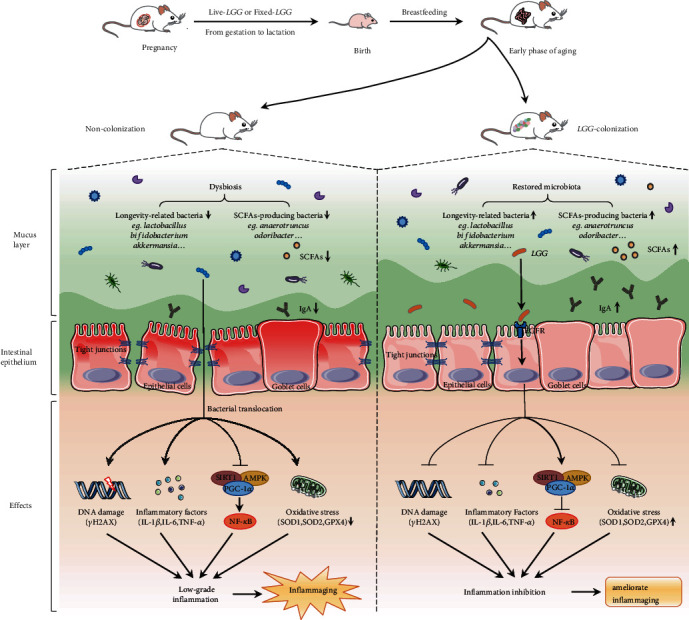Figure 9.

Lactobacillus rhamnosus GG colonization in early life ameliorates inflammaging of offspring. LGG colonization in early life significantly protected intestinal barrier function, enhanced antioxidant defense, and attenuated epithelial cell DNA damage in the early phase of aging mice. Decreased proinflammatory factors indicated that low-grade inflammatory was inhibited in the LGG colonization group. Interestingly, fecal microbiota analysis showed that the composition and diversity were significantly different between the two groups. Longevity-related bacteria (Akkermansia muciniphila, Lactobacillus, and Bifidobacterium) increased significantly in the LGG colonization group. LGG colonization increased the abundance of SCFA-producing bacteria and the content of cecal SCFAs. In addition, LGG plays an anti-inflammaging effect by activating the SIRT1/AMPK/PGC-1α pathway. TJ: tight junctions; IgA: immunoglobulin A; IL-1β: interleukin 1β; IL-6: interleukin 6; TNF-α: tumor necrosis factor-α; SCFAs: short-chain fatty acids.
